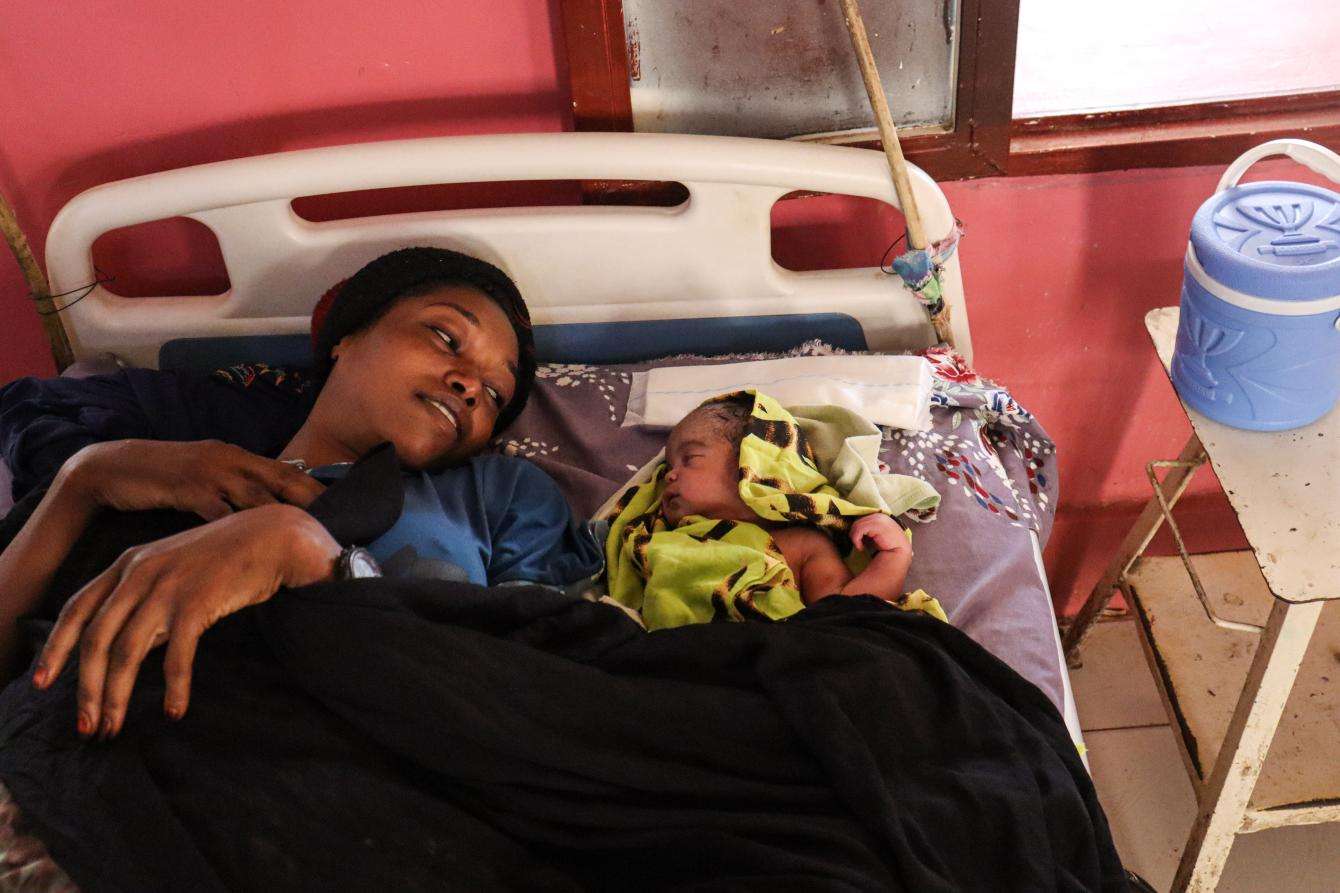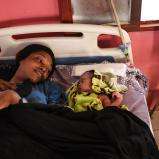As the war in Sudan continues, bringing with it dire humanitarian conditions, very few people have been spared from the risk of starvation and death that malnutrition poses in South Darfur.
An insufficient response from international organizations, including UN agencies, has left people without enough food to eat or adequate medical services to prevent avoidable deaths. Children and pregnant and lactating women are often most vulnerable to malnutrition.
This month, MSF is starting targeted food distribution, providing two months’ sustenance to 6,000 patients and their families. This amounts to 30,000 people.

In October, screenings carried out by Doctors Without Borders/Médecins Sans Frontières (MSF) or at MSF-supported facilities found that:
- In Nyala, 23 percent of children under 5 years old who were screened at the MSF-supported facilities were suffering from severe acute malnutrition.
- In Kas, 12.4 percent of children MSF screened at facilities we support were suffering from severe acute malnutrition, and 25.1 percent had moderate acute malnutrition.
- In two MSF-supported facilities, 26 percent of pregnant and lactating women were suffering from severe acute malnutrition.

Shocking number of maternal and child deaths in South Darfur, Sudan
Read moreHowever, the needs are simply too great for MSF to meet alone. Our teams are therefore focusing on providing food to people who already have another health condition and those enrolled in our malnutrition programs, who are most vulnerable to the risks of malnutrition. Patients already being treated in MSF malnutrition programs or people in MSF facilities—including pregnant and lactating women as well as children with malaria, diarrhea, or respiratory illness who also have malnutrition—will receive food for themselves and their families for the next two months.
MSF has started food distributions in the towns of Beleil and Doumaya in Nyala, and Alkifa and Jimeze in the Kassour area of Kas. We will carry out distributions in 16 other locations in South Darfur, where MSF runs medical activities in Jebel Marra. The second round of food distribution will begin in January.
MSF calls for international organizations to return to South Darfur and for warring parties to make it easier for humanitarian aid to reach the state.




